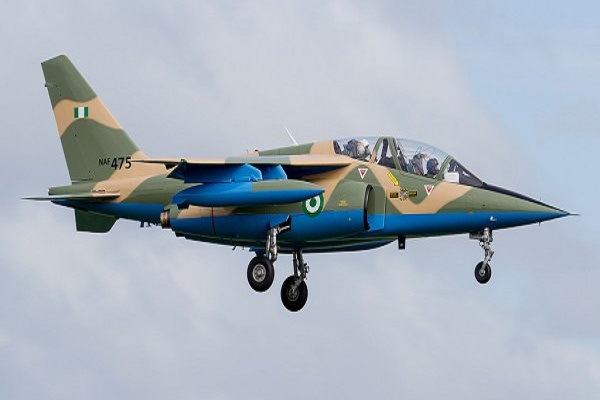Following the drone strike that killed over 100 innocent civilians in Kaduna State, some security experts have questioned the capacity of the military to efficiently deploy unmanned aerial vehicles in the fight against insurgency and called for upskilling of personnel.
They also called for regulation of drone usage by security agencies in order to tame its proliferation and attendant consequences in military operations.
While the Nigerian Army has owned up to its responsibility, some Nigerians have continued to make desperate efforts to paint a religious coloration to the unfortunate incident.
However, LEADERSHIP Weekend has authoritatively learnt that the victims were of both Christian and Muslim faiths contrary to insinuations.
Military sources said a Nigerian military UAV had almost collided midair with a Nigerian Air Force aircraft in the air field in Kaduna.
The source said the drone crew sometimes threw caution to the wind in an attempt to get to the target.
Speaking with LEADERSHIP weekend, a military veteran, Col Hassan Stan-Labo (rtd) described the drone strike as unfortunate and disturbing in view of the great loss to the community and the innocent souls involved.
He however said, “drone strikes, just like conventional air combat strikes, could come with some human errors resulting in collateral damages or outright target miss.
“Speaking professionally, incidents of this nature are likely occurrences in battle fronts.
“I witnessed it in Sierra-Leone, Liberia and The Darfur. As we speak, it is ongoing in the Russian-Ukraine war and The Israeli-Gaza war.
Terrorists today get embedded with civilians in hospitals, worship places, schools, etc in a bid to evade firepower.
The rate of occurrence can be highly reduced (not eliminated) through continuous training which the military is well noted for.”
In a statement to LEADERSHIP Weekend, a security consulting firm, Beacon Nigeria called for concerted efforts to end civilian casualties in military air reconnaissance.
The firm noted that security threats in the North West has prompted the use of UAVs as attack vectors.
Beacon Consulting said despite their effectiveness in counter-terrorism efforts, drones can also cause collateral damages to civilians as it recorded 18 documented ‘armed reconnaissance drone strikes on civilians’ incidents across seven states in the north.
The statement said these cases have been due to misinformation from generally credible sources (intelligence errors), target misidentification, environmental factors and communication gaps.
The statement added that erroneous strikes further raise concerns about the “proliferation of drones within Nigerian security agencies and the lack of guiding principles for their usage within certain institutions.”
Beacon Consulting therefore, outlined five strategic measures to prevent similar incidents in the future:
“Firstly, the government should reevaluate its existing framework for the acquisition of combat UAVs to ensure that these platforms are operated safely and responsibly by institutions with proven competence in intelligence, surveillance, target acquisition and reconnaissance.
“Particularly, competencies in associated intelligence such as imagery and geospatial aspects, which ultimately support effective target acquisition best practices, should be embedded in the framework and mainstreamed across the UAV eco-space in Nigeria.
“Secondly, the coordinating elements in the Nigerian security sector should work with the NA and other law enforcement agencies with weaponized UAVs to make clear standard operating procedures and guidelines for when and how drones can be used by security forces, particularly the military, during domestic operations.
In doing this, it is important to note the crucial role that human intelligence assets, such as those managed by the Nigerian Police Intelligence Units and the various agencies and departments in the Ministry of Interior, can play in target acquisition.
This minimises the risk of civilian casualties.
“Thirdly, the government can invest in training and equipping security forces with the necessary skills and technology to operate drones safely and effectively.
“Fourthly, the military, specifically the army, can improve its intelligence-fusion capabilities to ensure that drone strikes are attended to as a collective, with support from a central command co-ordinating such operations. This allows the support of experts and other decision-makers along the chain of command, supporting the accuracy of target missions.
“Strategic communication imperatives must be deployed in managing military and other security operations as a way of ensuring the whole of government and the whole of society approach.
“Finally, government and military institutions should prioritise transparency and accountability in their investigations into incidents, including drone-related ones. Establishing a robust process for holding personnel accountable for mistakes is crucial not only for preventing abuses but also for repairing strained civil-military relationships.”
The statement added that the listed approach supports the success of counterinsurgency missions by fostering collective local intelligence gathering.
The secretary general, International Institute of professional Security (IIPS), Dr Abdullahi Mohammed Jabi attributed strikes resulting in civilian casualties to judgement error on the part of operatives.
He however said such was not peculiar to the Nigerian military but a global challenge.
“It is an error of judgement when the intelligence was made available.
Though it was monumental and unprofessional on the part of the military.
“It is unfortunate and unprofessional; it is worsened by the level of recruitment of repentant Boko Haram into the military and calls for concern.
“Alot of theories are there that could be adduced to be a contributing factor to all weak performances of the army. This is the 7th time they are making this monumental strike on a civilian populace. If you cannot get your target as a professional then something is wrong.
“However, no army will intentionally want to kill it’s people; we sympathise with the bereaved. We have to understand that they are disadvantaged in terms of manpower so now that they have acquired these capabilities, they are using it. Such collateral damages are part of asymmetric warfare even at the international level. It’s not as if only the NA is making the error. We have it in the war between Hamas-Israel, Ukraine-Russia.”
Conference of the Civil Society groups on Friday cautioned attempts to adduce political, religious and regional inclinations to the unfortunate drone bombing that took place in Tudun Biri, Igabi local government area of Kaduna State.
The coalition during a press conference however said they look forward to a thorough and transparent investigation as ordered by President Bola Tinubu.
Chairperson of Conference, Adams Otakwu, who is also the coordinator of Civil–Military Cooperation (CIMICO), said the sad incident which led to the loss of innocent lives and several others wounded in a community with a mix of Muslims and Christians can best be described as unfortunate and a loss to Nigeria not just Tudun Biri, Igabi Local Government Area of Kaduna state.
“The Conference of Civil Societies and Coordinator of Civil-Military Cooperation (CIMICO) in Nigeria, following her National Roundtable in Abuja, to discuss the Nigerian Army Drone strike of December 3, 2023 in Tudun Biri, Igabi LGA of Kaduna State, maintains as follows:
“Such an incident that led to the loss of innocent lives and several others wounded in a community with a mix of Muslims and Christians [as noted by the district head of the community, Arc Aminu Idris] can best be described as unfortunate and a loss, not just to TudunBiri, Igabi Local Government Area of Kaduna state or a single faith, but to the country at large.
“Hence, we commiserate with the immediate community, the state and the entire nation, and urge for restraint on the part of groups and individuals politicising, regionalising or religionising the incident.
“As the voice and conscience of the masses, we note the promptness with which the Chief of Defence Staff and the Chief of Army Staff visited to condole with the community, where the Chief of Army Staff Lieutenant General Taoreed Lagbaja, on behalf of the Nigerian Army apologised and made provisions for upkeep and medical care of those wounded.
“This goes to underscore responsibility by the Nigerian Army, and we urge on all Nigerians as well as the international community to extend condolences, benevolences and prayers to the people of Tudun Biri, Igabi Local Government Area of Kaduna State at this trying moment, in addition to the responses by the Kaduna State Government, Civil Society, Armed Forces, Ministers of Defence and the Vice President of the Federal Republic of Nigeria.
“As watchdog of the society, we caution and call on those stoking needless tensions around the incident to desist forthwith, as we look forward to a thorough and transparent investigation as ordered by the president and Commander-in-Chief of the Armed Forces of the Federal Republic of Nigeria. Again, this is not a political, regional or religious issue, and should not be projected or interpreted as such, in the interest of national harmony, peace and security,” he said.





